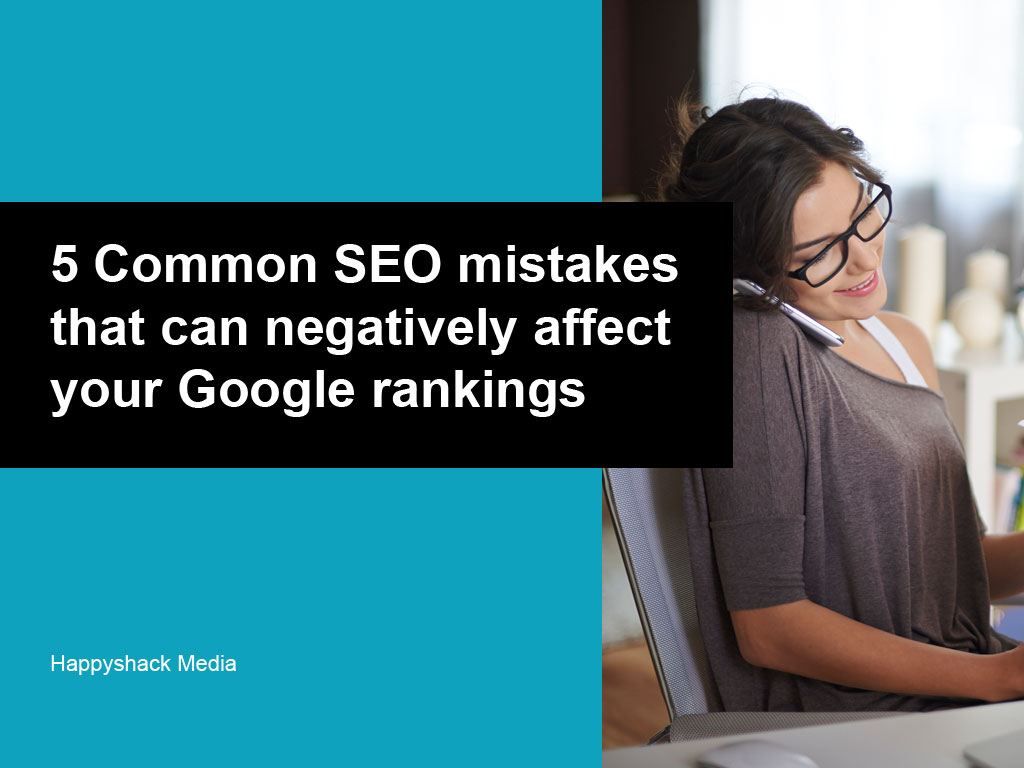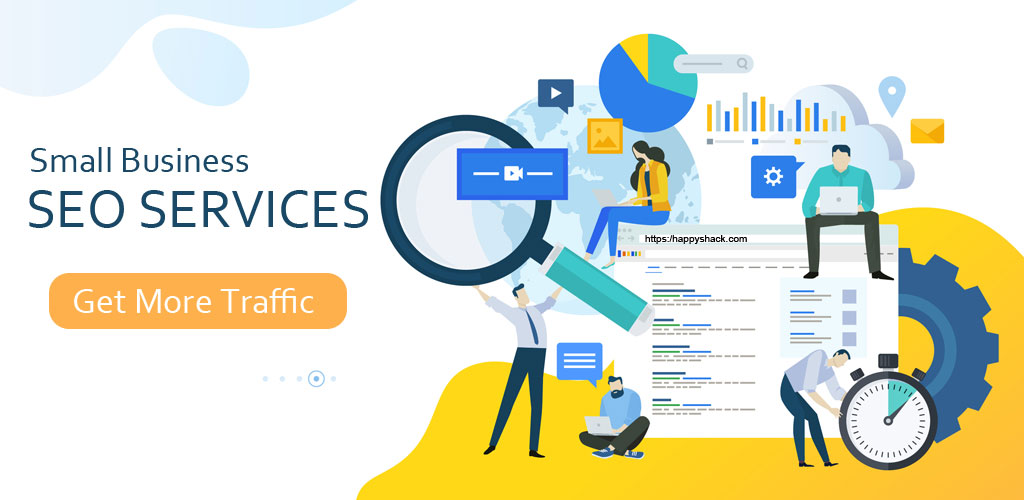
5 Common SEO mistakes that can negatively affect your Google rankings
Are you struggling to improve your website's visibility on Google?
Are you wondering why your rankings aren't as high as you'd hoped? The world of SEO can be complex and ever-changing, and even small mistakes can have a big impact on your search rankings. In this article, we'll explore some common SEO mistakes that can negatively affect your Google rankings.
By understanding and avoiding these pitfalls, you'll be able to optimize your website effectively, attract more organic traffic, and improve your online presence.
Table of Contents
- Importance of SEO for online visibility and organic traffic
- Overview of common SEO mistakes that can harm Google rankings
- Importance of avoiding these mistakes to improve search visibility
1. Neglecting Keyword Research
- Importance of keyword research in understanding user intent and targeting relevant terms
- Failure to conduct thorough keyword research can result in poor visibility and low-quality traffic
- 3 Tips for effective keyword research
- Significance of on-page optimization in signaling content relevance to search engines
- Common on-page optimization mistakes to avoid
- Best practices for on-page optimization
- Thin content refers to low-quality, shallow, or insufficient content
- Duplicate content refers to identical or very similar content across multiple pages
- Negative impact of thin or duplicate content on rankings and user experience
- Tips to avoid thin or duplicate content issues
4. Ignoring Technical SEO Issues
- Technical SEO encompasses website performance, crawlability, and indexability
- Common technical SEO mistakes to avoid
- Best practices for technical SEO
5. Neglecting Backlink Quality and Quantity
- The importance of backlinks in establishing website authority and trustworthiness
- Common backlink mistakes to avoid
- Tips for building high-quality backlinks
Introduction
The importance of SEO for online visibility and organic trafficThe importance of SEO (Search Engine Optimization) for online visibility and organic traffic cannot be overstated. Having a strong SEO strategy is crucial to stand out from the competition and attract valuable organic traffic.
Enhancing Online Visibility SEO plays a pivotal role in improving your website's visibility in search engine results pages (SERPs). When users search for information, products, or services related to your industry, appearing on the first page of search results significantly increases your chances of being discovered.
Studies have shown that websites ranking higher in search results receive the majority of clicks, as users tend to trust and click on the top-ranking pages.
By implementing effective SEO techniques, you can optimize your website's visibility and increase your chances of reaching your target audience.
Increasing Organic Traffic Organic traffic refers to the visitors who arrive at your website through unpaid search engine results. Unlike paid advertising or social media marketing, organic traffic is driven by the relevance and quality of your website's content, as determined by search engines.
By focusing on SEO, you can attract a steady stream of targeted organic traffic to your website. When your website ranks well for relevant keywords, it becomes more accessible to users actively searching for information or solutions related to your offerings.
This targeted traffic is highly valuable as it consists of users who have genuine interest and intent, increasing the likelihood of conversions and achieving your business goals.
Building Credibility and Trust High search rankings, achieved through effective SEO, can contribute to establishing your website's credibility and trustworthiness. When your website consistently appears in top search results, users perceive it as a reliable and authoritative source within your industry.
Ranking well signals to users that search engines consider your website to be relevant, valuable, and trustworthy. This positive association can help build trust with potential customers, encouraging them to explore your content, engage with your brand, and ultimately convert.
Cost-Effectiveness Compared to other digital marketing strategies like paid advertising, SEO provides a cost-effective long-term solution. While optimizing your website for search engines requires time, effort, and sometimes financial investment, the benefits can be substantial and sustainable.
Once you've achieved good rankings, you can continue to reap the rewards of organic traffic without ongoing budgets for advertising. By consistently refining your SEO strategy and staying ahead of algorithm updates, you can maintain and even improve your online visibility, maximizing the return on your investment.

By consistently refining your SEO strategy and staying ahead of search engine algorithm updates, you can maintain and even improve your online visibility, maximizing the return on your investment.
SEO is essential for online visibility and organic traffic. By implementing effective SEO techniques, you can improve your website's rankings in search engine results, attract targeted organic traffic, establish credibility, and achieve sustainable growth.
Investing in a robust SEO strategy is a smart and valuable long-term approach to optimize your online presence and gain a competitive edge over your competition.
1. Neglecting Keyword Research
One of the most critical mistakes in SEO is neglecting keyword research. Keywords are the foundation of search engine optimization, as they are the terms and phrases that users enter into search engines when looking for information, products, or services.
Failing to conduct thorough keyword research can result in missed opportunities to target the right audience and rank for relevant search queries. Below are some reasons why neglecting keyword research can be detrimental to your Google rankings.
Inaccurate Targeting Without proper keyword research, you may end up targeting keywords that are either too competitive or have low search volume. This means you'll be competing against established websites for highly sought-after terms or targeting keywords that have minimal user interest. In both cases, your visibility and traffic potential will be limited.
Lack of Relevance Keyword research helps you understand the language and intent of your target audience. By neglecting this research, you may fail to align your content with the terms and phrases that users are actually searching for. As a result, search engines may not consider your website relevant to those queries, negatively impacting your rankings.
Missed Long-Tail Opportunities Long-tail keywords, which are longer and more specific search queries, can often generate highly targeted and valuable traffic. Neglecting keyword research means you may overlook these long-tail opportunities, leaving potential traffic and conversions on the table. Long-tail keywords can be less competitive and allow you to target niche audiences more effectively.
Avoiding the pitfalls of keyword research
Don't underestimate the power of keywords! They serve as the bridge connecting your content to the users actively searching for what you have to offer.
To avoid these pitfalls and optimize your keyword targeting, it's essential to conduct thorough keyword research. Here are some tips to help you get started:
- Use Keyword Research Tools Leverage keyword research tools such as Google Keyword Planner, SEMrush, or Moz Keyword Explorer to discover relevant keywords. These tools provide insights into search volume, competition, and related terms, helping you identify valuable keyword opportunities.
- Analyze User Intent Understanding the intent behind keywords is crucial for delivering relevant content. Determine whether users are searching for information, products, or services, and tailor your content accordingly.
For example, targeting informational keywords may require creating informative blog posts or guides, while transactional keywords might call for product pages or landing pages.
- Identify Long-Tail Keywords Long-tail keywords often have less competition and a higher likelihood of conversion. Look for specific, detailed phrases that users might search for when looking for precise information or products. Long-tail keywords can help you capture targeted traffic and improve your chances of ranking for niche topics.
- Monitor and Refine Keyword research is an ongoing process. Continuously monitor your website's performance, keep an eye on search trends, and refine your keyword targeting accordingly. Regularly evaluate which keywords are driving traffic and conversions and adjust your content strategy to optimize for those terms.
By conducting comprehensive keyword research and optimizing your content around the right keywords, you can enhance your website's relevance, attract more targeted traffic, and improve your chances of ranking higher on Google.
2. Poor On-Page Optimization
When it comes to SEO, on-page optimization plays a crucial role in determining how search engines understand and rank your web pages. Unfortunately, many website owners neglect this aspect, leading to missed opportunities for better visibility.

Failing to utilize header tags properly can make it difficult for search engines and users to navigate and understand your content.
Let's take a closer look at the common on-page optimization mistakes you should avoid and some best practices to enhance your website's on-page SEO.
Mistake: Ignoring Title Tags, Meta Descriptions, and Header Tags. Title tags and meta descriptions are HTML elements that provide concise and relevant information about your web page's content. Neglecting to optimize these elements can make it challenging for search engines to understand what your page is about, resulting in lower rankings.
Best Practice: Write compelling title tags and meta descriptions that accurately summarize the content and include relevant keywords. Craft titles that are catchy, concise, and within the recommended character limit (typically around 50-60 characters). Additionally, ensure that each page has a unique title and meta description.
Mistake: Failing to utilize header tags properly can make it difficult for search engines and users to navigate and understand your content. Header tags (H1, H2, H3, etc.) are used to structure your content and provide hierarchy. They help search engines identify the main topics and subtopics of your page.
Best Practice: Incorporate relevant keywords naturally within your header tags. Use H1 tags for the main page title and subsequent header tags (H2, H3, etc.) for subheadings and sections. This not only helps search engines comprehend your content better but also enhances the user experience by providing clear organization.
 Keyword Stuffing and Over-Optimization
Keyword Stuffing and Over-Optimization
In the past, stuffing your content with excessive keywords might have yielded some short-term gains in search rankings. However, search engines have become more sophisticated in detecting such practices, and keyword stuffing can now have severe negative consequences on your rankings.
Focus on creating high-quality content that provides value to your audience. Naturally incorporate relevant keywords within your content, ensuring they flow seamlessly and contribute to the overall readability. Aim for a balanced approach, prioritizing user experience over excessive keyword usage.
Lack of Optimized URLs and Alt Tags for ImagesURLs and alt tags are additional on-page elements that are often overlooked. Optimizing these components can provide valuable context to search engines, improving your chances of ranking higher.
Best Practice: Craft clean and descriptive URLs that include relevant keywords and accurately reflect the content of the page. Avoid lengthy, complex URLs that are difficult to read and remember.
When it comes to images, alt tags (alternative text) are essential for accessibility and SEO. Alt tags describe the content of the image to both search engines and visually impaired users, aiding in better indexing and potential visibility in image search results.
Best Practice: Use descriptive alt tags that succinctly explain the image's content and context. Incorporate relevant keywords naturally, but avoid keyword stuffing. Additionally, ensure that alt tags are present for all images on your website, providing comprehensive information about each visual element.
By paying attention to these on-page optimization factors and implementing best practices, you can enhance your website's relevance and clarity in the eyes of search engines. Remember, it's all about striking the right balance between optimization and providing a seamless user experience.
3. Thin or Duplicate Content
Thin or duplicate content can be detrimental to your website's SEO efforts and can significantly impact your Google rankings. Thin content refers to low-quality, shallow, or insufficient content that fails to provide value to users. This can include pages with minimal text, generic or duplicated information, or content that lacks depth and originality. On the other hand, duplicate content refers to identical or very similar content appearing on multiple pages within your website or across different domains.

Search engines like Google aim to deliver the most relevant and unique content to users. When they encounter thin or duplicate content, they face challenges in determining which version is the most authoritative or relevant, resulting in a negative impact on your rankings.
Here are some key reasons why you should avoid thin or duplicate content
- Decreased Relevance Thin content often fails to address user search queries adequately, resulting in poor user experience. When visitors don't find the information they're looking for, they are likely to leave your website, increasing your bounce rate. This can send negative signals to search engines and harm your rankings.
- Lower Authority and Trust Creating valuable and comprehensive content establishes your website as a trusted resource in your niche. Thin content, however, undermines your authority and makes it difficult for search engines to consider your website a reliable source of information. This can affect your ability to earn backlinks and build a strong online presence.
- Duplicate Content Penalties Search engines penalize websites with duplicate content to prevent manipulation and ensure the delivery of unique and valuable results. If Google detects significant amounts of duplicate content, it may choose to rank only one version or exclude them from search results altogether. This can lead to a significant decrease in organic traffic and visibility.
To avoid these issues, follow these tips to address thin or duplicate content
- Create Unique and Valuable Content Focus on producing high-quality, original, and valuable content that provides in-depth information and answers user queries. Conduct thorough research to ensure your content offers a fresh perspective and covers the topic comprehensively.
- Conduct Content Audits Regularly audit your website's content to identify thin or low-quality pages. Remove or update such content to improve its depth and relevance. Consolidate similar or overlapping content into one authoritative page to avoid duplication.
- Utilize Canonical Tag When you have similar content across multiple pages, use canonical tags to indicate the preferred version of the content to search engines. This helps consolidate the authority and ranking signals to the preferred URL, avoiding penalties for duplicate content.
- Focus on Uniqueness Ensure that each page on your website offers unique value and stands out from the competition. Provide original insights, research, and perspectives to differentiate your content from others in your field.
By avoiding thin or duplicate content, you can enhance your website's relevance, authority, and user experience. Creating high-quality and original content will attract organic traffic, improve user engagement metrics, and boost your rankings on Google.
4. Ignoring Technical SEO Issues
When it comes to optimizing your website for search engines, it's not just about the content and keywords. Technical SEO plays a crucial role in ensuring that your website is accessible, crawlable, and indexable by search engines. Unfortunately, many website owners tend to overlook or ignore these technical aspects, which can have a significant impact on their Google rankings.
Here are some key technical SEO issues that should not be ignored:
Slow Page Speed Website visitors have become increasingly impatient, and if your site takes too long to load, they're likely to abandon it. Moreover, Google considers page speed as a ranking factor, as it directly affects the user experience. Slow-loading pages can result from various factors such as unoptimized images, excessive server requests, or bloated code.
By optimizing your website's performance, compressing images, minifying CSS and JavaScript files, and leveraging caching techniques, you can significantly improve page speed and enhance your search rankings.
Poor Mobile Optimization With the rise of mobile internet usage, Google now prioritizes mobile-friendly websites. If your site is not optimized for mobile devices, you're not only losing out on potential mobile traffic but also risking lower rankings in Google's search results.
Ensure that your website follows responsive design principles, adapting seamlessly to different screen sizes and resolutions. Mobile optimization involves factors such as legible text, appropriately sized tap targets, and streamlined mobile user experience.
Broken Links and Crawl Errors Broken links and crawl errors can negatively impact how search engines navigate and index your website. When search engine bots encounter broken links or encounter difficulties accessing certain pages, it hampers the crawling and indexing process.
Regularly monitor and fix broken links, ensuring that internal and external links are up-to-date and functional. Additionally, pay attention to crawl errors reported in your website's Google Search Console to identify and resolve any underlying issues that hinder search engine bots from properly indexing your site.
Lack of XML Sitemap and Robots.txt XML sitemaps and robots.txt files are essential for guiding search engine crawlers. An XML sitemap lists all the pages on your website that you want search engines to index. It helps search engines discover and understand your content structure more efficiently.
On the other hand, a robots.txt file instructs search engine bots on which areas of your site should be crawled and indexed and which should be excluded. Failing to have a properly formatted and up-to-date XML sitemap or robots.txt file can lead to incomplete indexing or unintentional exclusion of important pages from search results.
By addressing these technical SEO issues, you can ensure that your website is in good standing with search engines. Remember, technical SEO is an ongoing process, and it's crucial to regularly audit and optimize your site's technical aspects to maintain optimal performance and visibility in search results. Don't underestimate the impact that technical SEO can have on your Google rankings, as it forms the foundation for a successful and well-optimized website.
5. Neglecting Backlink Quality and Quantity
Backlinks have long been considered a crucial element in Google's ranking algorithm. They act as votes of confidence from other websites, signaling to search engines that your website is reputable, trustworthy, and worthy of attention. However, it's not just about the quantity of backlinks; quality plays an equally significant role. Neglecting both backlink quality and quantity can have detrimental effects on your Google rankings.
Let's delve deeper into why this aspect of SEO is vital and the common mistakes you should avoid.

One of the most detrimental mistakes you can make is obtaining low-quality or spammy backlinks.
Acquiring Low-Quality or Spammy Backlinks One of the most detrimental mistakes you can make is obtaining low-quality or spammy backlinks. These are typically links from websites with low authority, irrelevant content, or questionable reputations. While it might be tempting to pursue quick and easy link-building tactics, such as purchasing backlinks or participating in link schemes, these practices are strongly discouraged by Google.
Search engines are adept at recognizing and penalizing websites that engage in such activities, which can lead to a significant drop in rankings. Instead, focus on building high-quality, organic backlinks through valuable content and genuine relationship-building with reputable websites.
Overlooking the Importance of Diverse and Natural Link Profiles Another mistake is neglecting the diversity and naturalness of your backlink profile. A healthy link profile consists of a variety of sources and anchor texts. If your backlinks predominantly come from a single source or have identical anchor texts, it can raise red flags to search engines.
A diverse link profile demonstrates that your website is attracting links naturally and organically, which is highly valued. Aim to build backlinks from a mix of relevant websites, using a range of anchor texts that reflect the natural language used by users when linking to your content.
Tips for Building High-Quality Backlink
Building high-quality backlinks takes effort, but the results can be worth it. Here are some tips to help you build a strong backlink profile:
Create Valuable and Shareable Content Producing exceptional content that provides value to your target audience is the foundation of effective link building. When your content is informative, engaging, and unique, it becomes more likely to attract natural backlinks from other websites.
Build Relationships with Relevant Websites and Influencers Actively reach out to relevant websites, blogs, and influencers in your industry. Engage with them, offer guest posts, collaborate on content, or seek opportunities for them to reference and link to your valuable resources.
Monitor and Disavow Toxic Backlinks
Regularly monitor your backlink profile using tools like Google Search Console or third-party backlink analysis tools. If you find spammy or toxic backlinks pointing to your site, use the disavow tool to inform Google that you don't want those links to be considered when evaluating your website's authority.
Remember, a strong backlink profile is built over time with a focus on quality, relevance, and natural link acquisition. By avoiding the mistake of neglecting backlink quality and quantity, you can enhance your website's authority, credibility, and ultimately improve your Google rankings.
6. Conclusion
Optimizing your website for search engines like Google is a continuous and ever-evolving process. By avoiding common SEO mistakes, you can greatly enhance your chances of ranking higher in search results and attracting valuable organic traffic. Neglecting crucial elements such as keyword research, on-page optimization, and technical SEO can undermine your efforts and hinder your visibility.
Similarly, thin or duplicate content, as well as low-quality backlinks, can negatively impact your rankings and user experience. However, by implementing best practices like conducting thorough keyword research, optimizing your on-page elements, creating valuable and unique content, and building high-quality backlinks, you can give your website the best chance of success.
Remember, SEO is not a one-time fix but a long-term strategy. Continuously monitor your website's performance, stay updated on industry trends, and adapt your optimization techniques accordingly. Regularly audit your content, fix technical issues, and refine your keyword targeting to stay ahead of the competition.
Also, keep an eye on Google's algorithm updates and ensure your website adheres to their guidelines. By doing so, you'll not only improve your search rankings but also provide a better user experience for your visitors.
In the ever-changing landscape of SEO, learning from mistakes and staying informed are key. Take the time to educate yourself, explore reliable resources, and stay connected with the SEO community. By avoiding common SEO pitfalls and embracing best practices, you'll be on your way to achieving higher visibility, increased organic traffic, and improved overall success in the search engine rankings.



